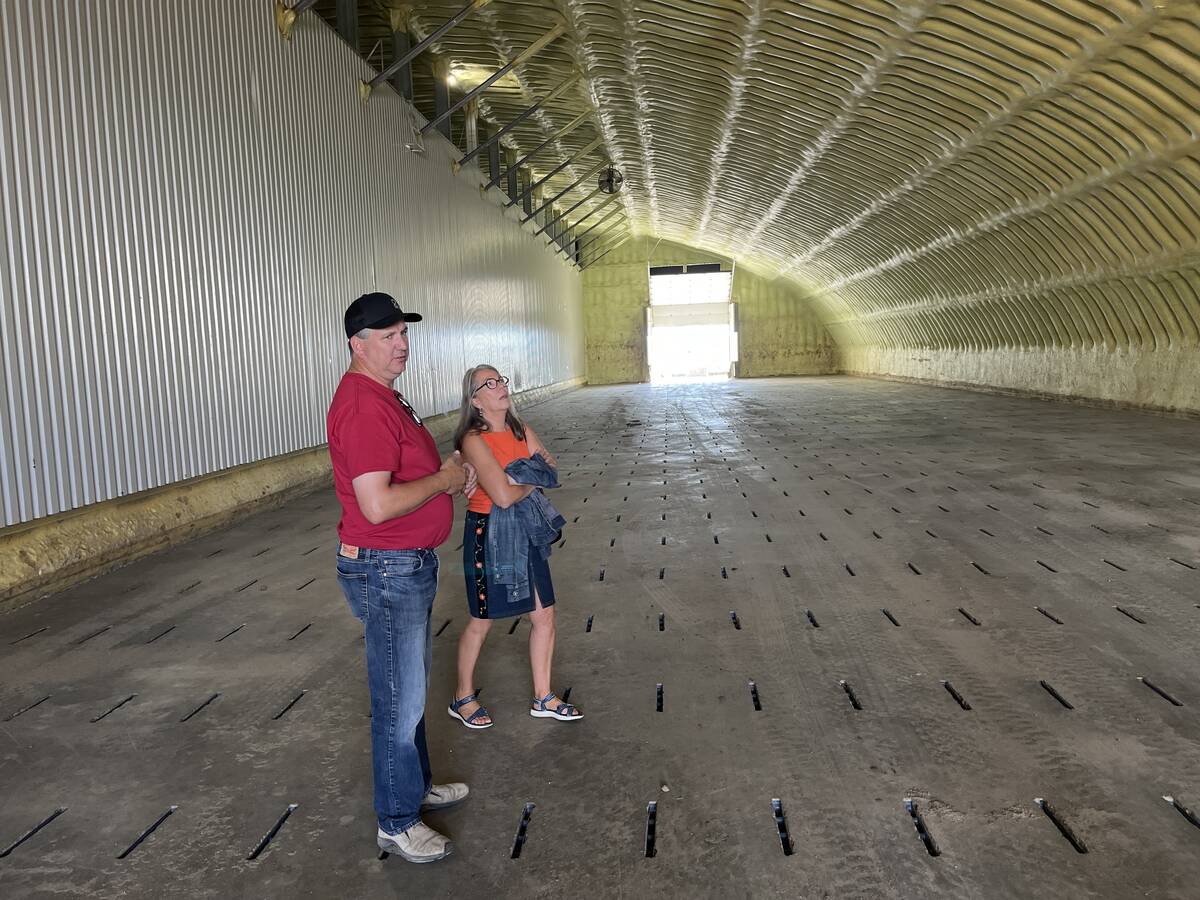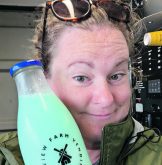Respect, honesty and being able to speak safely about expectations and ideas are all keys to building strong relationships within families
YORKTON, Sask. — Healthy communication and relationships among family members who farm together are just as important as the bottom line, young farmers attending a Farm Credit Canada event heard earlier this month.
Dani Wildfong, who grew up on a Saskatchewan farm and now helps farm families with transition plans, said relationships are the bottom line on farms and deserve constant attention.
“You have an opportunity and you have a choice to make every day when you get up, how you will treat other people,” she told the crowd.
Read Also

Potato farm requires year-round management
The most recent Open Farm Day in Alberta showcased agricultural producers across the province educating the general public about the process that is required is to get food to their table.
Respect, honesty and being able to speak safely about expectations and ideas are all keys to building strong relationships. Everyone wants to be appreciated, she said, but if their ideas are met with hostility or dismissed, they won’t see themselves as part of the group.
Group dynamics are always at play, said Dale Curd, a counsellor who appeared on CBC television as the host of Hello Goodbye and who also raises hogs at his Ontario farm.
He sees it often when older farmers have a way of doing things they expect their children or employees to follow without question.
Curd said research shows that tightly connected groups who share a common vision outperform a loosely knit group 10 to one.
“Companies know this. Teams certainly know this. I don’t know how well agriculture knows this, or whether agriculture is still working inside of a framework, inside of a way of doing things, that makes it, maybe, more difficult for you,” he said.
The corporate world is increasingly turning to servant leadership, or transformational leadership. This is where leaders focus on making sure the needs of others are met rather than a top-down approach.
Curd said this applies to farms.
“It means…I’m going to teach you to do a process and then I’m going to help you maximize your efficiency at doing that process and then I’m going to get out of the way,” he said.
Family farms are businesses and Curd said having a high-functioning, stable, purpose-driven group of family members is possible.
Curd pointed out that family structures haven’t changed a lot in hundreds of thousands of years. Survival depended on the strong hunter gatherer, who led the group.
But he said people are no longer part of the survival driven food chain.
“Why are we running our families like we’re still on the food chain?” he said.
Likely because nobody has tried to do it differently, he answered his own question. Each generation tries to change things but also brings with them a lot of the practices that were done before.
He used research by the Google corporation to illustrate how effective different management can be among teams. The company found when it analyzed the performance of 180 teams that the best weren’t the ones composed of its most qualified people.
Those groups function as individuals who aren’t accountable to each other because they’re competing for the spotlight.
Instead, a group that buys into a process or goal, despite differences, works the best together.
“Groups that are highly efficient, highly collaborative…their leadership is not top down but horizontal,” Curd said. “It’s not authoritarian but collaborative and consensus-driven.
“There is a clear path to a vision and everyone shares accountability and purpose.”
Successful groups have a good foundation of solid basic practices and every member has the right to continually improve.
Curd also said that solid groups have psychological safety.
“This is a way of describing an atmosphere where everyone is able to grow and everybody is able to make mistakes and not be shamed for those mistakes,” he said.
Humans are often penalized, punished or disciplined for making mistakes and learn there is shame in errors.
“The brutal truth is honesty without kindness,” Curd said, referring to what many experience when they err.
Groups where people can be heard, listen well and show empathy are solid.
Those who are experiencing communication issues within their farm family structures can solve them by working to establish horizontally led groups that model psychological safety if they will put in the work, he said.
Wildfong said a willingness to become better group members and create better relationships will help farm families through transition and success. Transparency, respect and safety to ask for what they need are all parts of stronger communication needed to do that.
“Sixty percent of family enterprise failures are caused by lack of communication,” she said.
Both Wildfong and Curd said family members won’t agree on everything but they have to be aligned on the outcomes.


















